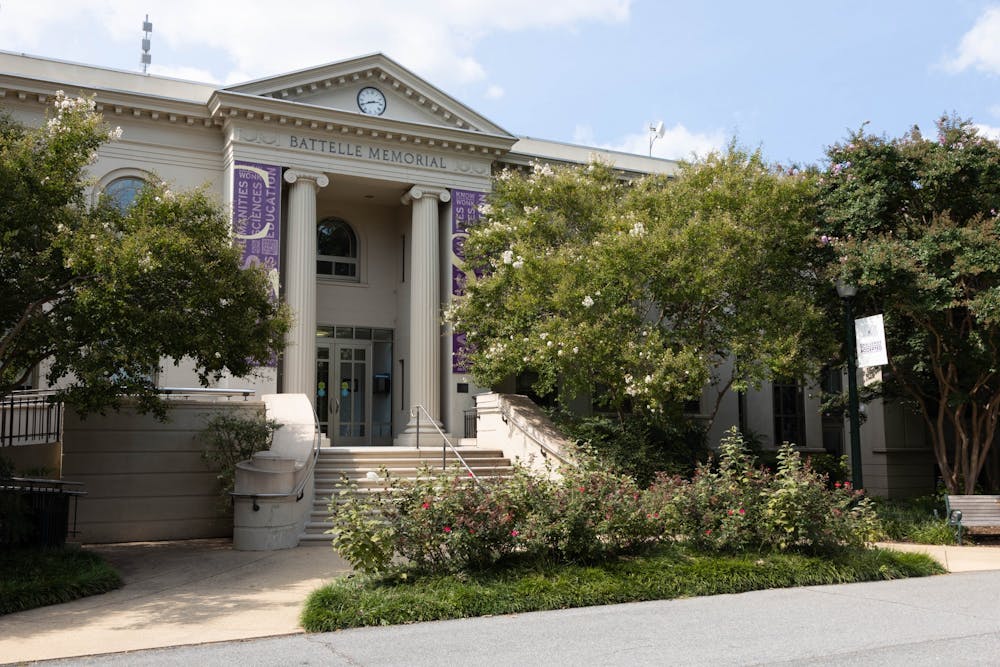The American Studies program at American University hosted an event on Nov. 17 called “Indigenous Health: A Roundtable Discussion,” covering inequalities in public health and health in Indigenous communities.
The discussion was moderated by professor Tanja Aho, who is part of the Department of Critical Race, Gender and Cultural Studies and teaches classes on disability rights. Before starting the conversation, they shared documents with resources on health and the Indigenous community, encouraging the audience to ask questions.
The discussion hosted five panelists: Josie Raphaelito, Elizabeth Rule, Mariah Gladstone, Candi Brings Plenty and Ajo. They began by acknowledging that the AU campus sits on land that once belonged to tribes that were native to the area that is now D.C. Ajo read a statement developed by the Student Advocates for Native Communities.
“At the confluence of the Anacostia and the Potomac rivers lie the traditional lands of the Piscataway, Nacotchtank and Anacostan peoples,” Ajo said. “American University sits within those lands, lands that were taken away from [those peoples] by the colonial powers of the seventeenth century, via conflict and a string of broken treaties and promises.”
“Today we highlight those failed promises, while also gratefully acknowledging the resilient and steadfast Piscataway, Nacotchtank and Anacostan peoples.”
Rule, a citizen of the Chickasaw nation and professor of CRGC studies at AU, began the discussion by asking the panelists how their professional work in public health relates to the health of Indigenous people.
“It was a great opportunity for me to learn a bit more about public health on a national level, and how the different national tribal organizations work together to elevate the stories and voices of our communities into the public health spotlight,” said Raphaelito, a citizen of the Navajo nation, who studied public health policy at George Washington University.
Through working at the Center for Native American Youth, Raphaelito created suicide prevention programs for native youth alongside fellow panelist Gladstone.
“We wanted to focus on the resiliency of our young people and the leadership and courage that it takes for that person to step up and share their story on how they're overcoming barriers and challenges,” Raphaelito said.
Suicide is the second leading cause of death for Native American youth under the age of 24. Raphaelito said that public health opens doors to conversations about prevention, education, community outreach and engagement research, making it important to start a dialogue about health and support for mental health within native communities.
Some of their efforts involved asking two-spirited native LGBTQ+ community members for feedback on inclusivity in public health, cancer research and honoring indigenous values within their programs.
Public health, especially in indigenous communities, also includes a conversation about food. Mariah Gladstone, who is Blackfoot and Cherokee, created Indigikitchen, an online cooking show that aims to re-introduce traditional native foods and recipes into modern American diets.
Gladstone said she started Indigikitchen in 2016 as a way to “reteach and revitalize” information about native foods, using both traditional recipes and reinventing them for modern-day.
“I recognized that revitalizing indigenous food systems … helps us recognize the wisdom of our ancestors, and the inherent value of our identities and connects us with our landscape, which in turn benefits us both culturally and ecologically,” Gladstone said.
Candi Brings Plenty, who grew up on the Pine Ridge Reservation in South Dakota, said that they experienced food disparities within tribal living.
“I’ve definitely seen and felt and lived through the disparities across tribal reservation living,” they said. “You know, food scarcity is humongous.”
After growing up on the reservation, Candi Brings Plenty moved to Oregon, where they relied on public resources for mental health support. Through doing this, they learned of the severe lack of indigenous representation within those programs.
“I very much went through the spectrum of using public resources and learning how to advocate for myself and seeing the holes of mental health support,” they said. “There was a lack of representation for the indigenous view and voice.”
Eventually, they were able to use their experience as a two-spirit person to give their input and help change these systems to be more inclusive.
Panelists also discussed how settler colonialism has historically shaped Indigenous health and how it still impacts public health policy as a whole today.
For example, colonial governments completely changed the diets of native peoples in addition to introducing them to new diseases that they had never been exposed to. Repercussions in diet are still seen today, Gladstone said.
Mental health is affected as well: “There is absolutely nothing natural about the state of disparities, disproportionate disease, sky high rates of mental health issues and suicide,” Rule said. “And specifically, within my area of expertise, violence against native women, and how that affects Indigenous well-being and health on so many levels.”
Native women experience violence, namely sexual violence, at a higher rate than women of other races and ethnicities. This, Rule said, reverberates within native communities; all members feel the impact and the pain when a two-spirit woman experiences violence.
This compounds intergenerational trauma within native communities.
To conclude the discussion, Ajo asked the panelists what brings them the most joy and the most hope within their work.
Panelists discussed the connectivity they get to experience on a regular basis, the resilience they see within native peoples and getting to see native women, LGBTQ+ people and people with disabilities having the chance to make their voices heard properly.
“I find joy in this work and that I'm not alone,” Raphealito said. “We've all had our own journeys to get where we are now, and we found the strength and courage to speak up.”





